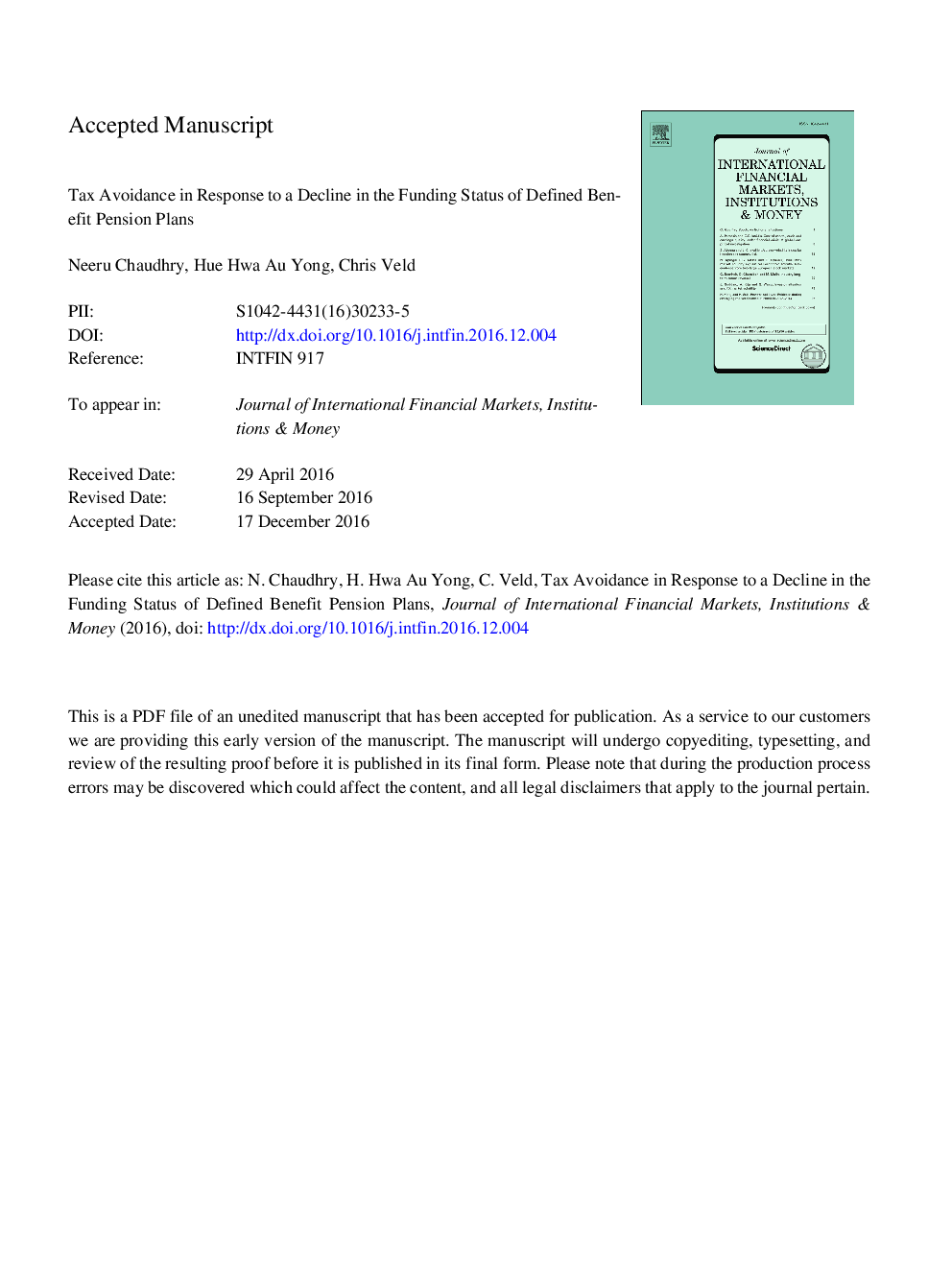| Article ID | Journal | Published Year | Pages | File Type |
|---|---|---|---|---|
| 5101000 | Journal of International Financial Markets, Institutions and Money | 2017 | 44 Pages |
Abstract
We examine the effect of the funding status of defined benefit (DB) pension plans on company tax avoidance behavior. Our results reveal that firms engage more in tax avoidance when the pension deficit, defined as pension liabilities minus pension assets scaled by total assets, increases. We find that for an average pension deficit firm one standard deviation increase in pension deficit is associated with annual tax savings of $3.64Â million. For 2014 we find that, on the aggregate level, for firms with underfunded DB pension plans a one standard deviation increase in pension deficit is associated with annual tax savings of more than 2.7Â billion dollars. Our results hold after controlling for factors such as profitability, financial constraints, operating losses, and foreign income.
Keywords
Related Topics
Social Sciences and Humanities
Economics, Econometrics and Finance
Economics and Econometrics
Authors
Neeru Chaudhry, Hue Hwa Au Yong, Chris Veld,
